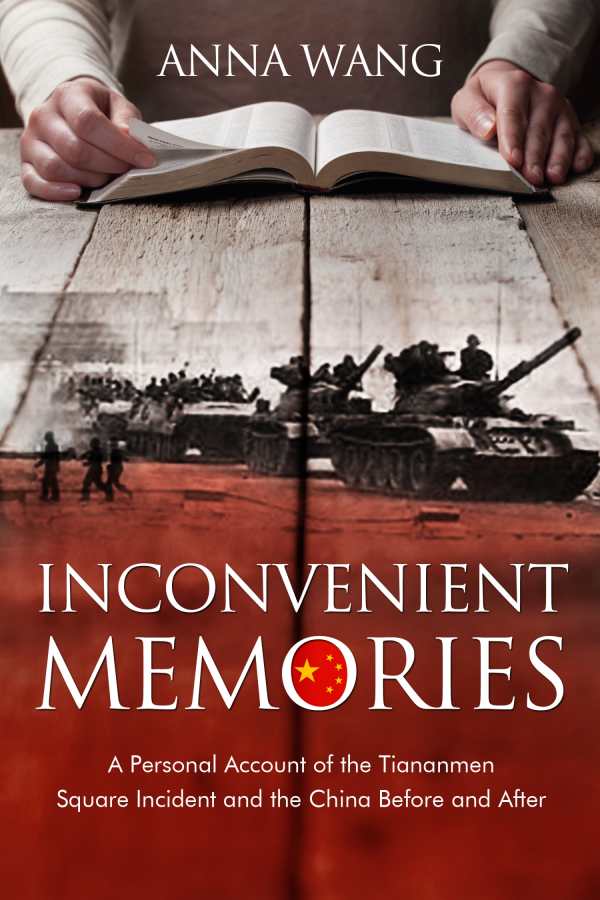Inconvenient Memories
A Personal Account of the Tiananmen Square Incident and China Before and After
Inconvenient Memories is a memoir that’s rooted in a historic moment and that tackles questions about identity with political and literary acumen.
Anna Wang’s probing memoir Inconvenient Memories revolves around a childhood in China, with the 1989 Tiananmen Square protests standing out.
On the verge of moving her family in Canada, Wang decides to examine what brought her to this pivotal point. Most of her childhood was spent with her grandmother in Beijing; she entered Peking University to study science, graduating in 1988. In 1989, university students staged protests on Tiananmen Square, calling for education reform, democracy, and a market economy.
Motivated by the students and disheartened by her series of dead-end secretarial jobs, Wang pursued a graduate degree at the University of Oregon. She returned to China to marry, and she and her family moved back and forth between China, New Zealand, and Canada. Her memoir comes to question where home is.
Most central to the book is Wang’s search for self. From an early age, she reflects, she wanted to feel unique and worked to set herself apart, first from her taciturn grandmother, who summarized her life in two dire sentences; in contrast, Wang wished to be woman of many words and experiences.
Though later identifying with the Tiananmen Square students’ call for reform, Wang didn’t take the same political risks; instead, she argued on the student’s behalf with coworkers. Indecisiveness also comes up in her love life, with friends, and in her perpetual yearning to be anywhere other than China. Observant writing captures many facets of the events covered, and creative associations bring together disparate observations, as with a whale sighting that is made to tie into Wang’s wandering personality.
Wang’s personal experiences include interesting insights into China’s politics and its relationships to the outside world. She recalls how, during Nixon’s visit to Beijing, neighborhoods were locked down, reflecting how America was viewed as an enemy. Opinions about economic models and forms of government play in, and Wang’s pursuit of freedom comes to inform even the free-flowing writing.
Conversations with others are captured well, even when they’re curt and argumentative; Wang’s daughter proves to be her most delightful conversation partner, especially toward the end of the book. However, Wang’s conversations with books are the most interesting, both inquisitive and earnest. Writing and reading prove key to her search to understand what it means to be Chinese and a citizen of the world.
Though mostly chronological, the book sometimes dips into the past to explain present events. Chapter transitions are natural, though the chapters surrounding the Tiananmen Square incident are the most focused. Accounts from the days before, during, and after the protests are full of details, feelings, and opinions, with photographs included to enhance the descriptions. In those chapters, the pace is frantic to match the tense mood in Beijing. Once the protests are squelched, the text meanders, with self-contained episodes strung together in a way that often feels directionless.
Inconvenient Memories is a memoir that’s rooted in a historic moment and that tackles questions about identity with political and literary acumen.
Reviewed by
Mari Carlson
Disclosure: This article is not an endorsement, but a review. The publisher of this book provided free copies of the book and paid a small fee to have their book reviewed by a professional reviewer. Foreword Reviews and Clarion Reviews make no guarantee that the publisher will receive a positive review. Foreword Magazine, Inc. is disclosing this in accordance with the Federal Trade Commission’s 16 CFR, Part 255.

